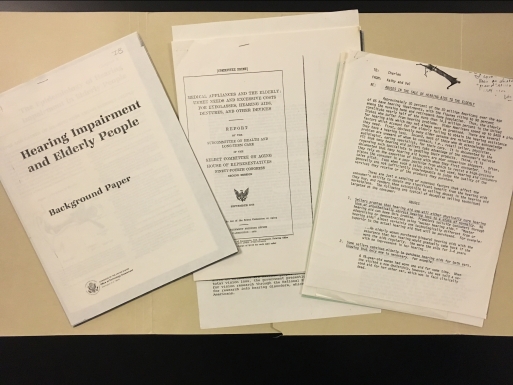Recently, while engaging in a record survey project involving the Claude Pepper papers, I discovered Pepper’s influential work in lowering hearing aid costs to improve affordability and strengthen precise hearing loss screenings among seniors.

Senator Claude Pepper was perhaps the first politician to grasp the burdens of older Americans owning hearing aids. In fact, many people that were 65 and older during his congressional service either couldn’t afford hearing aids, because their insurance didn’t cover the cost, or they were exposed to fraudulent tactics to purchase them. As sellers created the illusion that hearing aids could either physically cure hearing loss or prosthetically correct hearing loss to a state of normalcy. And, in some cases, older adults fell victim to purchasing two hearing aids for both ears when only one was necessary due to a faulty diagnosis. As a result, Claude Pepper took great pride in building awareness about hearing aids and affordability by introducing the H.R. 646 Bill on January 15, 1979, to propose a supplementary medical insurance program to aid in covering hearing aid costs and safeguard consumer abuse. The bill also pushed for hearing aid manufacturers to advertise that hearing aids could not cure or impede hearing impairments. The bill demanded that the Food and Drug Administration mandate the requirement of an audiologist examination before purchasing hearing aids under the Medicare program to secure accurate treatment. Senator Pepper fought hard for this great cause, even though Congress later decided to reject the bill.
If you would like to learn more about Claude Pepper’s work regarding hearing aid legislation, please visit the Claude Pepper Library & Museum. Materials are available for researchers and can be discovered online through the collection’s finding aid.